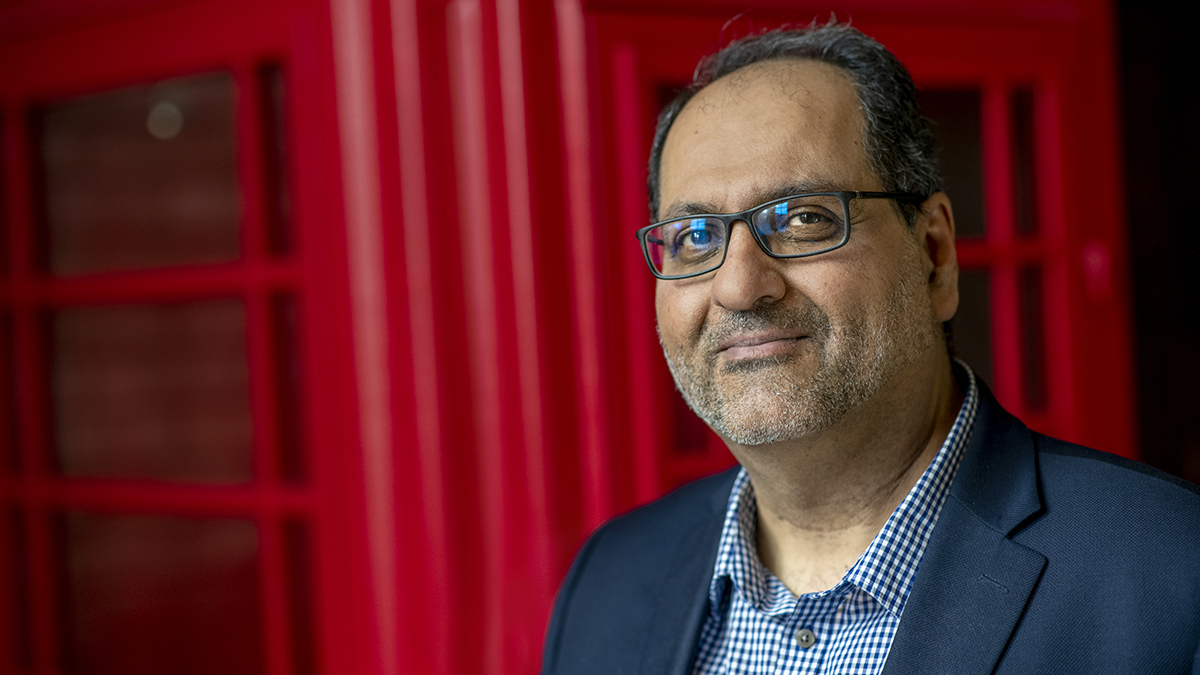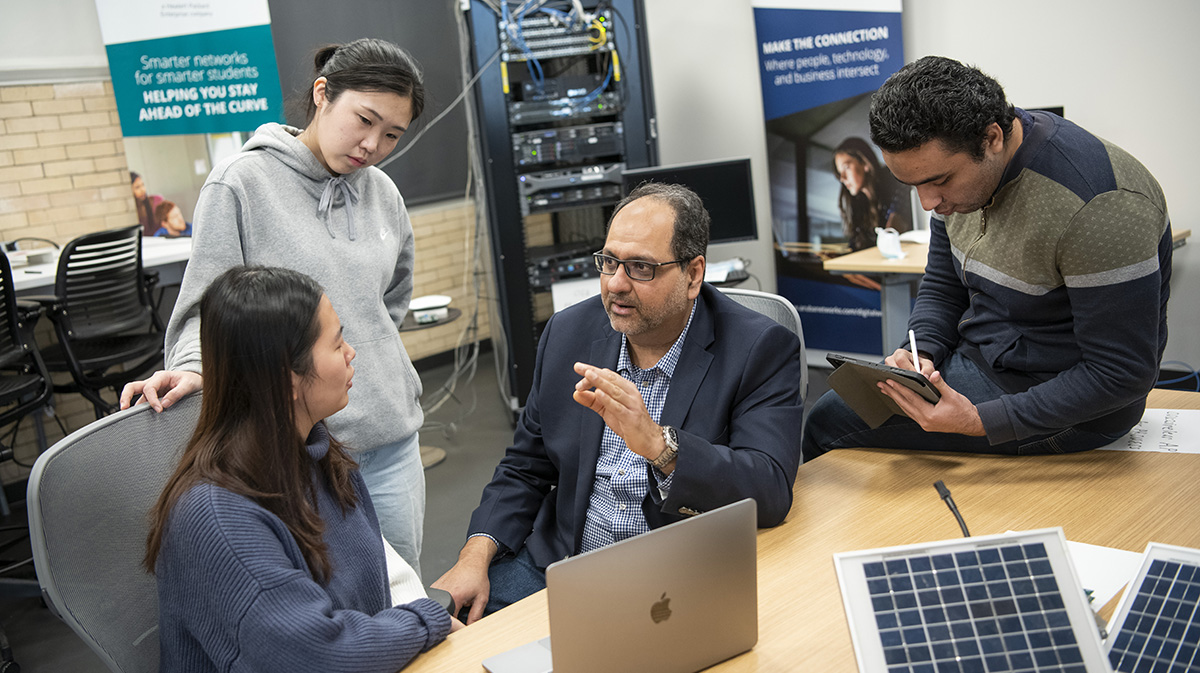Artificial intelligence for future ‘edge’ networks
Shroff's AI tools will break new ground in ‘edge’ technology

One day when our phones cruise at 7G technology, self-driving cars are the norm and we enjoy more robust national cybersecurity, Ohio State’s Ness Shroff will be a major reason why.
Shroff, an Ohio eminent scholar of computer science and engineering, recently began directing a national institute called AI-EDGE (Artificial Intelligence Institute for Edge Networks and Distributed Intelligence) to develop artificial intelligence and computer networking tools to help us break new ground in “edge” technology.
Traditional computation has happened at big, powerful data centers considered the “core” of the internet. However, the current demand explosion is from wireless devices, services and applications at the “edge” of the internet. That includes everything from smartphones and smart aerospace to autonomous vehicles, remote health care and even all those Zoom calls we’ve enjoyed the past two years.
“We have this technology that has revolutionized the way we live and has made our lives a lot easier,” said Shroff. “And now we have the ability to revolutionize it even further to help people in their daily lives.”
AI-EDGE, which includes academic, government and industry researchers from across the country, will create AI tools to design next-generation edge networks that are efficient, self-repairing and secure, also helping us go from 5G capabilities to 6G and 7G.
So when a hurricane hits a town, these improved edge technologies will fix themselves instead of waiting on people to physically repair them. These technologies will do everything from helping those unable to drive get to the doctor in autonomous vehicles to cleaning your house to warding off cyberattacks.

“A lot of applications that need to happen (are) at the edge,” said Junyi Li, vice president of engineering for Qualcomm and an AI-EDGE advisor. “So this work is extremely important to government partners like the Department of Defense or industry partners like myself.
“It’s a very practical matter to revolutionize this technology and realize this dream of having AI at the edge,” Li said, “and the institute Ness is building will solve challenging and fundamental problems.”
Li, who was Shroff’s first PhD student at Purdue University, said working with Shroff throughout the years has helped him overcome difficult networking challenges because he not only focuses on the fundamentals of a problem but how the solutions can impact the real world.
He also said Shroff is the perfect person to lead the AI-EDGE effort.
“Ness has that personal magic to lead a team like this,” Li said. “He just knows how to put a team together, build relationships and create a very coherent piece.”
Shroff said AI-EDGE will democratize AI because it will allow people access to sophisticated services and tools through the collaboration of end devices.
And while upgrading edge technologies is a major goal, Shroff said the second critical vision of AI-EDGE is developing the next generation of engineers in this field, growing and diversifying the national workforce by building educational content and curricula that spans K-12, university students and faculty.
“It’s a national priority, and it’s critically important we educate students, professionals and practitioners in these technologies and substantially grow and diversify the workforce,” Shroff said.